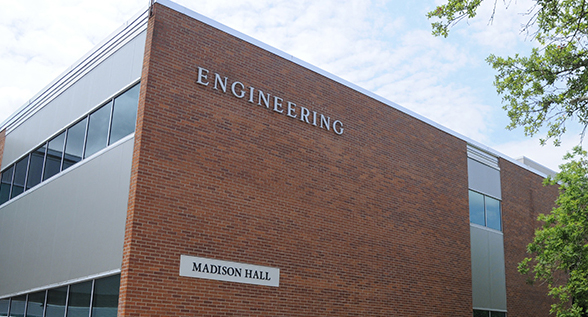The University of Louisiana at Lafayette’s College of Engineering is one of 122 U.S. engineering schools that have pledged to educate a new generation of engineers expressly equipped to tackle some of the most pressing issues facing society.
Those issues – known as “Grand Challenges” – include engineering better medicines, making solar energy cost-competitive with coal, and securing cyberspace. They are identified through initiatives such as the White House Strategy for American Innovation, the National Academy of Engineering Grand Challenges for Engineering, and the United Nations Millennium Development Goals.
Each of the 122 schools has pledged to graduate a minimum of 20 students per year who have been specially prepared to lead the way in solving such large-scale problems. The goal is to train more than 20,000 formally recognized “Grand Challenge Engineers” over the next decade, according to the National Academy of Engineering.
“The UL Lafayette College of Engineering is committed to producing increased numbers of engineers with specialized skill sets in large project design and management. In particular, the college is educating Ph.D. level students with strong teaching and research-oriented skills but also systems engineering skills that will allow them to more effectively and quickly solve complex problems facing society,” said Dr. Mark Zappi, dean of that college.
“Grand Challenge Engineers” will be trained through special programs at each participating institution that integrate five educational elements:
• a hands-on research or design project connected to the Grand Challenges;
• real-world, interdisciplinary experiential learning with clients and mentors;
• entrepreneurship and innovation experience;
• global and cross-cultural perspectives; and
• service-learning.
A training model was inspired by the National Academy of Engineering-endorsed Grand Challenge Scholars Program, established in 2009 by Duke’s Pratt School of Engineering, Olin College, and the University of Southern California’s Viterbi School of Engineering in response to the NAE’s 14 Grand Challenges for Engineering in the 21st century.
There are 20 active GCSPs and more than 160 NAE-designated Grand Challenge Scholars have graduated to date. Half of the graduates are women—compared to just 19 percent of U.S. undergraduate engineering students—demonstrating the program’s appeal to groups typically underrepresented in engineering.
Examples GCSP projects include working to provide access to clean water in Haiti, to create sustainable engineering projects in developing countries, and to advance personalized learning tools.
The NAE’s Grand Challenges for Engineering grew out of a 2014 workshop organized by the American Association of Engineering Societies, Epicenter, Engineers Without Borders USA, EPICS, and the NAE Grand Challenge Scholars Program.
